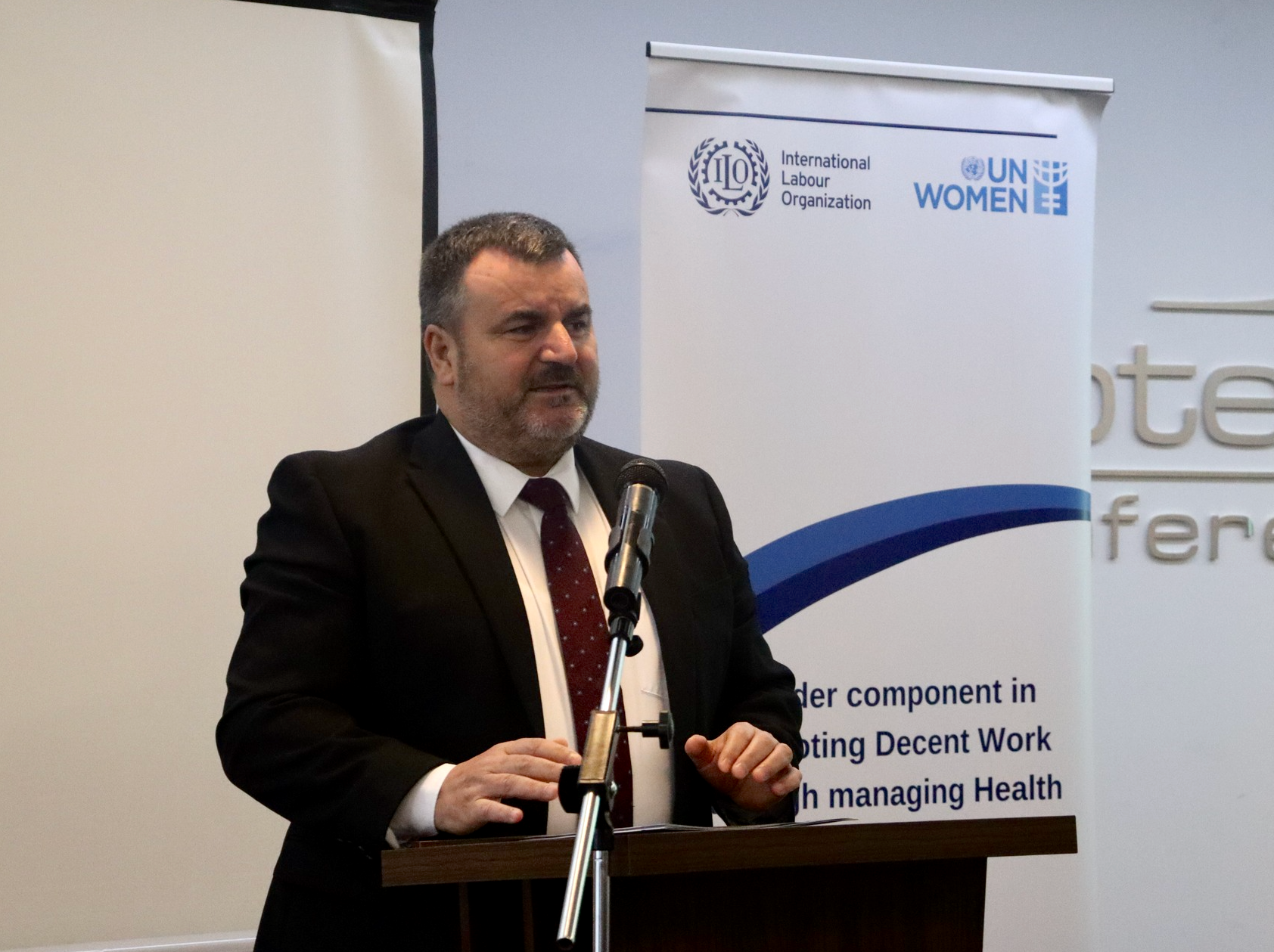Sexual harassment in the workplace underreported in Kosovo, suggests new study
Date:

Nine per cent of women in Kosovo[1] have experienced sexual harassment in the workplace, according to a new study carried out with 500 women respondents from different professional sectors in the public and private sector conducted in the 7 largest regions of Kosovo (Pristina, Prizren, Mitrovica, Ferizaj, Pejë, Gjakovë, Gjilan).
Launched on April 6th, the study "Safety and Health at Work: A study of cases of sexual harassment at the workplace in Kosovo in the public and private sector", was conducted by UN Women and IDRA Consulting with support from the Ombudsperson Institution of Kosovo.
During the launch of the report, it was noted that due to the sensitivity of the subject, the findings may not fully reflect the reality for women in the workplace. When giving reasons for not reporting sexual harassment, the fear of losing their job was at the top of the justifications.
Regarding the form of sexual harassment that they have witnessed in the workplace, comments of a sexual nature are listed with 25 per cent, electronic or physical stalking (20%) and sexual coercion or quid pro quo - something in exchange for something (19%).
This field research aimed at collecting the opinions and perceptions of employed women regarding their general safety in the workplace, women’s exposure to sexual harassment and its impact on their physical and mental well-being.
Speaking at the launch event, Ombudsperson Naim Qelaj emphasized the importance of preventing sexual harassment by vowing that the institution he leads will extend its efforts to address and make visible the issue. Furthermore, he said that this report will raise concerns, contribute to achieve a solution, and compel relevant institutions to take action on these cases.
"Sexual harassment can happen to anyone, regardless of gender. According to a global survey by ILO, one in 15 people globally have experienced sexual harassment in the workplace. However, statistically women experience sexual harassment at work more than men," said Vlora Tuzi Nushi, head of UN Women Kosovo.
Arnhild Spence, United Nations Development Coordinator in Kosovo, said: “Everyone has the right to a workplace free form sexual harassment. Let us have zero tolerance for violence and harassment at work – or anywhere.”
The report highlights that 72 per cent of surveyed women were familiar with the term sexual harassment in the workplace and 24 per cent stated that they were not aware of it.
The report also provides specific recommendations for different relevant institutions – duty-bearers – in establishing and maintaining reporting mechanisms and develop preventative policies.
The study was conducted within the framework of the labour rights campaign “A decent job for a dignified life,” under the leadership of the Ministry of Finance, Labour and Transfers with support of the Embassy of Sweden in Pristina. Implementing partners of the campaign are Labour Inspectorate, Tax Administration of Kosovo, International Labour Organization, UN Women, Community Development Fund, Kosovar Stability Initiative, Center for Policies and Avocation and LENS.
[1] 1 References to Kosovo should be understood to be in the context of UN Security Council Resolution 1244 (1999). For the European Union, this designation is without prejudice to positions on status, and is in line with UNSCR 1244/1999 and the ICJ Opinion on the Kosovo declaration of independence.